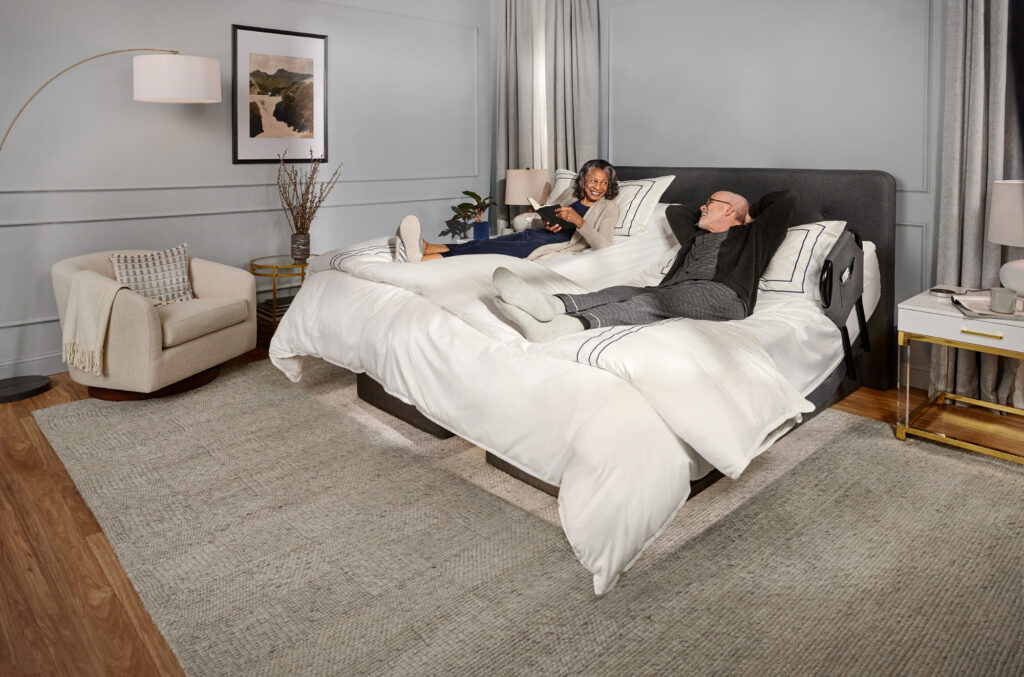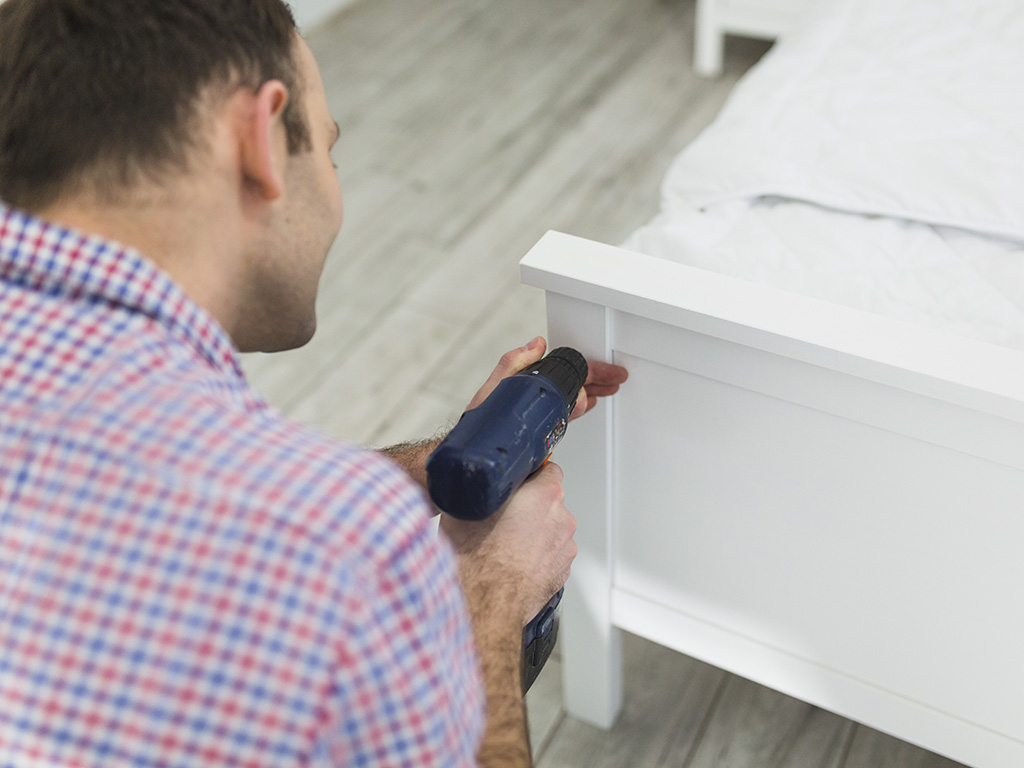Do you wake up with a stiff neck, back tension, or still feel tired—even after 8 hours of sleep? The problem might not be you… it might be your bed.
Proper body alignment during sleep is essential. And the bed you choose can make all the difference. Here’s how to find the one that helps you sleep better.
1. Support is everything
Think of your spine as a straight line. Even when lying down, it should keep its natural curve—without sinking like a hammock or stretching tight like a board.
Too soft? Your back collapses into it. Too firm? Pressure points build up. The sweet spot? A mattress that contours to your body without sagging. Not too hard, not too soft — just the right firmness to support you all night long.
2. Adjustable beds: the luxury of customization
What if your bed could adapt to you—instead of the other way around? That’s exactly what adjustable beds are made for.
Elevate your legs a little, raise your head, try out the famous “zero gravity” position… It all helps relieve tension, boost circulation, and above all, support optimal alignment. It’s comfort, personalized.
Bonus: At Beaudoin, we offer several adjustable models designed to blend seamlessly into your décor—while giving your body the support it deserves.

3. A solid base for steady nights
A good mattress is key—but what’s underneath matters just as much. A weak or worn-out base can undo all your efforts toward better support.
A platform bed base, for example, provides a stable, durable, and often more modern foundation. Take Beaudoin’s Level or Reflexx platform base: simple, strong, and stylish. It gets the job done without stealing the spotlight.
4. Listen to your body (it knows what it needs)
Every sleeper is different. Your aches, your sleeping position, your body type… all of it matters.
Do you sleep on your side? On your back? Deal with chronic pain? Sometimes, a quality adjustable bed with lumbar support can be a game-changer. Don’t hesitate to talk to an expert—or go try one in-store!

In a nutshell
The right bed is the one that supports you without holding you back. One that respects your body, your posture, and your sleep.
Take the time to choose. Try it. Compare. And most of all, pay attention to how you feel in the morning. Because the right bed isn’t just furniture—it’s an investment in your well-being, night after night.




 4. Regular inspection and tightening of components
4. Regular inspection and tightening of components






















